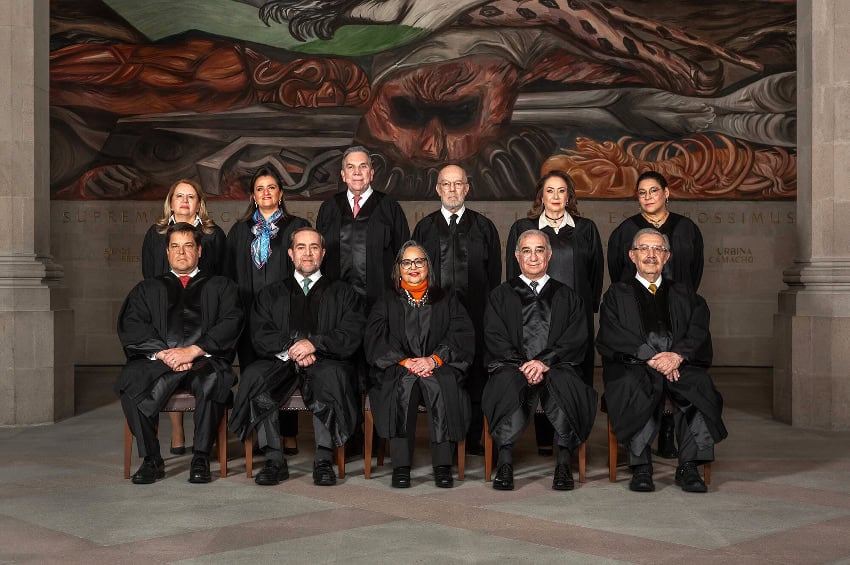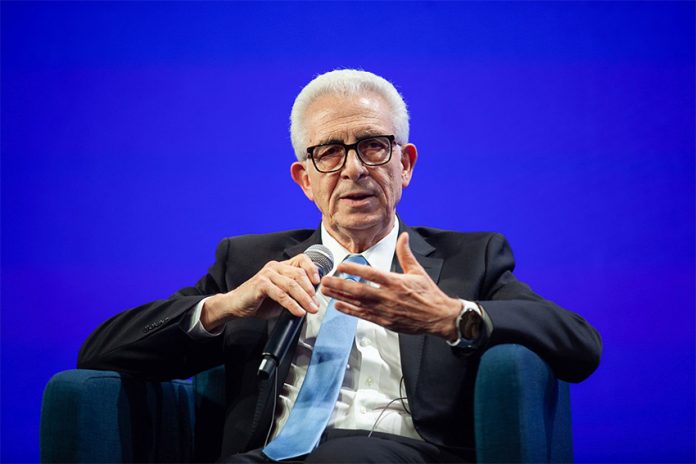President Claudia Sheinbaum is fueling a “constitutional crisis” as she doubles down on her support for former President Andrés Manuel López Obrador’s “antidemocratic scheme,” former Mexican President Ernesto Zedillo asserted in an op-ed published by The Washington Post.
Zedillo, president from 1994 to 2000, writes early in his opinion essay that Sheinbaum was elected “to lead a democratic country,” but as president “appears committed to following her predecessor’s aim of reverting Mexico to a one-party autocracy, reminiscent of much of the 20th century, when competitive and fair elections were lacking and the judiciary was not independent.”
The former president represented the Institutional Revolutionary Party, or PRI, which ruled Mexico as a hegemonic political force for 71 years between 1929 and 2000.
In the Post, he writes that reforms enacted during his presidency allowed Mexico to become “a multiparty democracy with regular power alteration” and to have “an independent judiciary that has, on many occasions, upheld constitutional principles against reckless moves by other branches of government.”
Zedillo subsequently accuses the ruling Morena party of “using an unconstitutional interpretation of the electoral rules” and “appearing to buy the vote of a senator by promising him and his family impunity for serious crimes” in order to achieve a two-thirds majority in Congress that allowed it to approve the contentious judicial reform, the most controversial aspect of which is the provision allowing the direct election of all judges.
The 72-year-old ex-president asserts that the elected judges “will be neither independent nor competent” and notes that “the replacement of the judiciary is being framed as a democratic process, with judges to be elected by popular vote from lists of candidates.”

“This argument is preposterous, as the lists will effectively be determined by the ruling party,” he contends.
Later in his op-ed, Zedillo notes that the Supreme Court has been asked to review the constitutionality of the judicial reform, and argues that it has the right to do so — contrary to claims from government officials, including Sheinbaum.
“One of the court’s core missions is to verify the constitutionality of actions by other branches of government — a key purpose of the 1994 judicial reform,” he writes.
For her part, Sheinbaum said this week that Mexico’s top court doesn’t have the authority to legislate or to strike down a constitutional reform that “followed all the [legislative] processes that the Constitution establishes.”
Morena sought to reinforce that view — also expressed by Sheinbaum’s top legal adviser — with its so-called “constitutional supremacy” reform, which was passed by the Chamber of Deputies on Wednesday and promulgated by Sheinbaum on Thursday.
The reform, Zedillo observes, “aims to strip the court of its authority to review constitutional amendments passed by Congress.”
“This latest move has fully unmasked Morena: Its intent is to transform Mexico’s political regime into an authoritarian one,” he writes.
“Regrettably, Sheinbaum has doubled down on her support for AMLO’s antidemocratic scheme, even emulating his tactics of slandering, insulting and threatening both the judiciary as an institution and individual judges as well as others who have criticized the amendments. She is also advocating that the government ignore court rulings,” Zedillo continues.
“The constitutional crisis she is fueling will not deliver the good and democratic governance she was elected to provide,” says the ex-president.
Zedillo’s remarks are similar to those made by Justice Juan Luis González Alcántara Carrancá, who said on Friday that if the Supreme Court hands down a ruling against the judicial reform — which it could do next Tuesday — and the government doesn’t comply with it, “we will have a constitutional crisis and all Mexicans will have to absorb and suffer the consequences.”
Concluding his opinion piece, Zedillo asserts that Sheinbaum — who argues that the current judiciary is largely corrupt and needs to be renewed — should “use her mandate to halt the democratic regression orchestrated by AMLO” and “initiate a genuine and comprehensive process of reform to achieve true rule of law and citizens’ security in Mexico.”
“She could then improve enormously upon her predecessor’s poor performance. She must decide between honoring her loyalty to AMLO or to the Mexican people’s will to live in democracy,” he writes.
Zedillo’s full opinion piece appears on The Washington Post website
